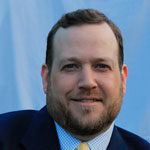
When LSU economist and Revenue Estimating Conference member Jim Richardson conducted his first major tax study in 1987, he was pleased to discover it had a great shelf life.
All of the gubernatorial candidates that year signed on to support its findings and roughly a decade later some of its key recommendations, like the so-called Stelly Plan and the phasing out of taxes on business equipment, were implemented.
Now Richardson is back at it with a study group that was created through a cooperative endeavor agreement that was signed by Senate President John Alario, R-Westwego, and House Speaker Chuck Kleckley, R-Lake Charles.
The state is putting up $150,000 for the effort, and Tulane University, through the Murphy Institute, has tossed in another $50,000.
In addition to pouring over the state’s much-ballyhooed tax exemptions, Richardson said the study group will undertake a very comprehensive review, from tax rates and property taxes to credits and administration.
“We know a lot of this is political,” Richardson said. “But we are not going to offer recommendations based on the revenues officials think they need.”
The independent undertaking started with an 80-page overview of Louisiana’s tax system that was prepared by Richardson and Greg Albrecht, the Legislature’s chief economist.
That was then picked apart by Bill Fox of the University of Tennessee’s Center for Business and Economic Research and Oxford Fellow George R. Zodrow of Rice University’s Economics Department.
The followup work is being overseen by Richardson and Albrecht as well as Tulane University’s Steve Sheffrin and Jim Alm. With the money dedicated to the study, they are using graduate students at LSU to investigate individual topics like distribution impacts and sales taxes.
With a final report due sometime in March, the group hopes to bounce its findings off of a nonpartisan organization like the Public Affairs Research Council, but there are no plans to reach out to business groups or special interests.
“Lobbyists have been calling me. I feel like a legislator sometimes,” said Richardson. “But this will eventually be available for everyone to see. Then we’ll wait to find out who runs with it. We will make recommendations that will help Louisiana be competitive with other states, create revenue needed for the future and that result in a system that is fair.”
In what appears for now to be a purely academic exercise, Kleckley said he is staying hands-off.
“I defer to Jim Richardson on this. I want a solid report that we can look at next year and nothing more,” the speaker said.
While Kleckley said the original goal was to have a document that would generate a discussion during the 2015 race for governor, some of the findings could make their way into the next session, especially with a $1.2 billion shortfall looming.
“We could start nipping at it,” Kleckley said.
The 2015 regular session of the Louisiana Legislature will be a fiscal session, meaning tax-related measures can be introduced.





Be the first to comment